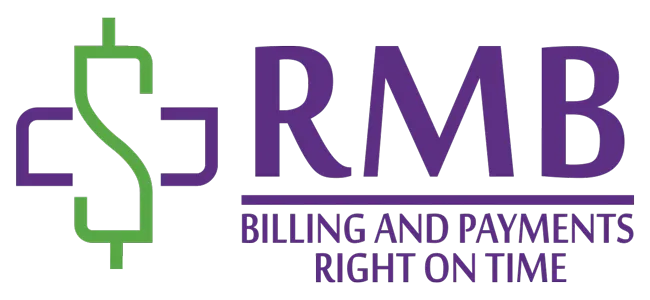The Future of Medical Billing: How AI and Automation Will Reshape RCM by 2030
The healthcare industry is entering a period of rapid transformation, driven largely by artificial intelligence (AI), automation, and advanced data technologies. One area poised for major change is Revenue Cycle Management (RCM) — the backbone of financial health for hospitals, group practices, urgent care centers, and private clinics. By 2030, medical billing will look dramatically different from what it is today, reshaping workflows, compliance, and even patient-provider relationships.
In this article, we’ll explore how AI and automation will redefine RCM over the next five years and beyond, the challenges practices must prepare for, and why partnering with an expert billing company like Right Medical Billing (RMB) ensures long-term sustainability.
The Current State of Medical Billing and RCM
Today’s RCM is a complex, multi-step process involving patient registration, insurance verification, coding, charge capture, claims submission, payment posting, denial management, and collections. Despite technology improvements, inefficiencies remain:
-
Claim denials: Nearly 15–20% of healthcare claims are denied on the first submission.
-
Rising complexity: Value-based care models, ICD-10/11 coding changes, and payer-specific rules complicate billing.
-
Manual tasks: Staff still spend significant hours on repetitive processes like eligibility checks, prior authorizations, and appeals.
This combination of administrative burden and financial leakage creates fertile ground for AI-driven innovation.
AI-Powered Claims Scrubbing and Submission
By 2030, AI will become the standard for claims scrubbing — identifying errors before submission. Predictive models will flag missing documentation, mismatched codes, and non-compliant entries. Instead of staff manually correcting claims, AI systems will self-correct or prompt coders with high-accuracy recommendations.
For practices, this means:
-
Higher clean claim rates (first-pass approvals).
-
Reduced administrative overhead.
-
Faster reimbursements.
RMB already leverages advanced claim scrubbing technology, ensuring fewer denials and a shorter revenue cycle for our clients.
Predictive Analytics for Denial Prevention
AI doesn’t just correct mistakes — it anticipates problems. By analyzing historical claim data, payer behavior, and regulatory trends, AI models will predict which claims are most likely to be denied and why.
By 2030, denial management will shift from being reactive to proactive. Instead of spending weeks appealing denied claims, practices will have real-time alerts and corrections before the claim even reaches the payer.
This will drastically reduce Days in Accounts Receivable (A/R) and improve cash flow — a major win for hospitals and small practices alike.
Automation in Prior Authorizations and Eligibility Verification
One of the most frustrating bottlenecks in RCM today is prior authorization. It delays care, frustrates patients, and consumes staff time. Automation powered by AI will streamline this process by:
-
Auto-checking payer databases for requirements.
-
Submitting authorization requests electronically.
-
Tracking real-time status updates without manual intervention.
Similarly, eligibility verification will be fully automated, with AI systems scanning patient data against payer records instantly. What once took hours will be done in seconds, minimizing claim rejections due to eligibility mismatches.
AI in Coding and Documentation
Medical coding is one of the most error-prone areas in billing. By 2030, Natural Language Processing (NLP) will transform coding by reading clinical documentation, extracting relevant terms, and assigning accurate CPT, ICD, and HCPCS codes.
Instead of coders spending time searching through notes, they will review and validate AI-generated codes — increasing accuracy and productivity. This hybrid model (AI + human oversight) will cut down coding backlogs while reducing compliance risks.
RMB emphasizes both technology and expertise in coding audits to ensure maximum reimbursement and compliance with payer rules.
Patient-Centric Billing with AI Chatbots
Patients are increasingly demanding transparency in healthcare billing. By 2030, AI-powered billing assistants will handle patient queries 24/7 — explaining charges, setting up payment plans, and sending reminders.
This shift will:
-
Reduce patient confusion and complaints.
-
Improve collections by offering flexible, AI-personalized payment options.
-
Enhance patient satisfaction by providing clarity and responsiveness.
For providers, this means less staff time spent on patient billing issues and more focus on care delivery.
Fraud Detection and Compliance with Machine Learning
Fraudulent claims cost the healthcare system billions each year. By 2030, AI will become a watchdog for fraud and compliance violations, detecting unusual billing patterns, duplicate charges, and upcoding/downcoding risks.
Machine learning algorithms will evolve continuously, adapting to new schemes and regulatory updates. This proactive approach protects practices from costly audits, fines, and reputational damage.
Real-Time KPI Dashboards for Practice Leaders
Today, many providers struggle to see the financial health of their practice at a glance. By 2030, AI-driven dashboards will display real-time KPIs such as:
-
Days in A/R
-
Denial rates
-
Net collection ratio
-
Patient collection performance
These dashboards will integrate predictive analytics, alerting administrators when trends indicate revenue risks — empowering practices to make data-driven decisions instantly.
Challenges in Adopting AI and Automation
While the benefits are immense, adoption isn’t without challenges:
-
Upfront investment in AI platforms and integration.
-
Staff training to adapt to new workflows.
-
Data security concerns with sensitive patient information.
-
Regulatory alignment as governments catch up with AI-driven billing models.
This is why choosing the right RCM partner becomes critical. Practices need not only technology but also experienced professionals who understand compliance, payer relationships, and evolving billing standards.
The Role of Right Medical Billing in the Future of RCM
At Right Medical Billing, we believe the future is human expertise amplified by technology. By blending automation, AI, and predictive tools with years of industry experience, we ensure practices achieve:
-
Maximum reimbursements.
-
Compliance and audit protection.
-
Reduced operational burden.
-
Improved patient billing experiences.
As 2030 approaches, RMB is committed to staying ahead of technology trends, ensuring our clients never fall behind in the race toward financial efficiency.
Final Takeaway
By 2030, AI and automation will not just optimize medical billing — they will redefine the entire revenue cycle. From claim submission to denial prevention, from patient billing to compliance, every step will be faster, smarter, and more transparent.
Healthcare providers that embrace these changes early will thrive financially while offering better patient experiences. Those who resist risk being left behind.
Right Medical Billing stands ready as a strategic partner for the future of RCM — combining cutting-edge technology with human insight to help practices grow, remain compliant, and achieve sustainable revenue.




